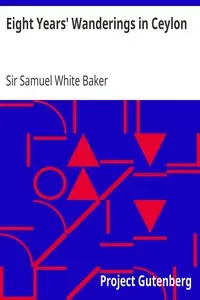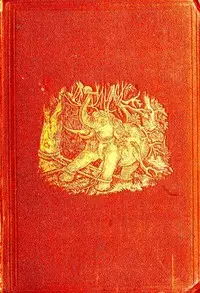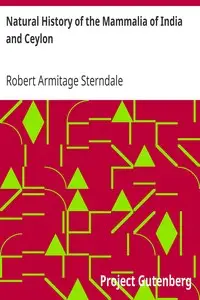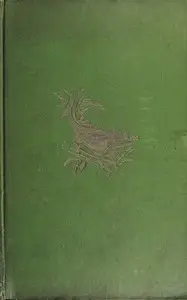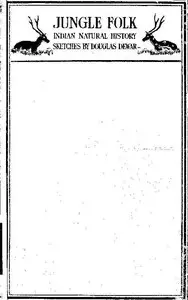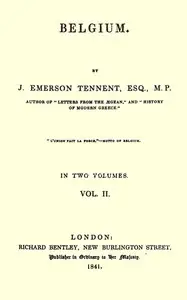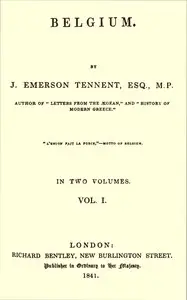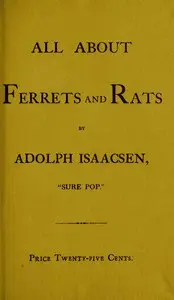"Sketches of the Natural History of Ceylon" by Sir James Emerson Tennent is a 1800s exploration of the wildlife in Ceylon, now known as Sri Lanka, through observations of the island's mammals, birds, reptiles, and insects and the unique behaviors of different animals interacting with their habitats. The book opens with a discussion on the lack of deep studies of Ceylon's nature, acknowledging the naturalists who came before, while noting the cultural and social challenges in studying the environment, as well as a special focus on the life and capture of elephants. Tennent's goal is to spark interest in Ceylon's animals and drive more research into the island's natural state.

Sketches of the Natural History of Ceylon
By James Emerson Tennent
Venture into a 19th-century exploration of an island's untouched wilderness, where exotic creatures roam free and scientific inquiry challenges cultural indifference.
Summary
About the AuthorSir James Emerson Tennent, 1st Baronet, FRS was a Conservative Member of the United Kingdom Parliament for the Irish seats of Belfast and of Lisburn, and a resident Colonial Secretary in Ceylon. Opposed to the restoration of a parliament in Dublin, his defence of Ireland's union with Great Britain emphasised what he conceived as the liberal virtues of British imperial administration. In Ceylon, his policies in support the growing plantation and wage economy met with peasant resistance in the Matale Rebellion of 1848. In recognition of his encyclopedic surveys of the colony, in 1862 he was elected a Fellow of the Royal Society.
Sir James Emerson Tennent, 1st Baronet, FRS was a Conservative Member of the United Kingdom Parliament for the Irish seats of Belfast and of Lisburn, and a resident Colonial Secretary in Ceylon. Opposed to the restoration of a parliament in Dublin, his defence of Ireland's union with Great Britain emphasised what he conceived as the liberal virtues of British imperial administration. In Ceylon, his policies in support the growing plantation and wage economy met with peasant resistance in the Matale Rebellion of 1848. In recognition of his encyclopedic surveys of the colony, in 1862 he was elected a Fellow of the Royal Society.


